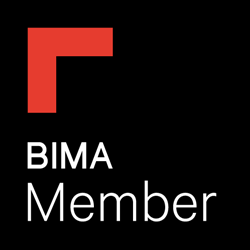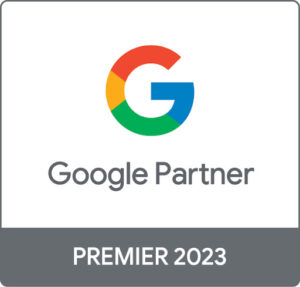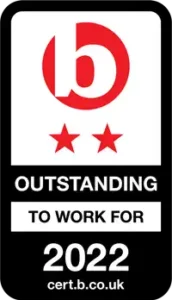Facebook has been steadily growing its stock of campaign objectives available to users to suit their vast business needs. Choosing the appropriate marketing objective as per your KPIs and strategy can aid in generating better results from your campaigns. To do so, there are a few things you should consider.
What Facebook Campaign Objectives are there?
Facebook provides 11 options for campaign objectives, or 13 if you consider Engagement’s 3 subcategories. These extend across the three stages of the consumer journey: awareness, consideration, all the way to conversion.
In keeping with this, before picking a Facebook campaign objective, you should have a clear idea of your business goals and what you’re looking to gain from advertising on Facebook.
A robust marketing plan will feature strategies to tackle all three consumer journey stages. This will allow for healthy long-term growth of both brand and individual product/ service sales. A strategy focusing only on conversions, for example, will adequately capture audiences low down in the sales funnel, allowing for a generous Return-On-Ad-Spend. On the other hand, neglecting the consideration and awareness stages will stunt expansion by failing to capture new customers and those yet to enter a research phase in their buying behaviour.
When outlining a facebook ad objective, you should ideally be looking to make multiple campaigns for more than one of the consumer journey phases. It is common that some facebook marketing objectives may naturally overlap. Someone who will engage with your post (Engagement) may also click through to your website or Facebook page (Traffic). Therefore you should think of each campaign as having only one important metric, the one you’ve assigned it through its primary objective.
Why are Facebook Marketing Objectives Important?
Although it can be tempting to want your campaign(s) to have multiple positive outcomes, giving it a singular objective and expecting it to perform on numerous other metrics would be paradoxical.
Facebook utilises data gained from people’s actions and behaviour on Facebook to run the algorithm. This decides which users within your targeting settings should be prioritised. Picking an objective can then be seen as ‘telling’ Facebook the types of outcome you’d view as a success.
When it comes to auction time, Facebook will try to secure placements in the view of users who have historically taken actions in keeping with your objective. For example, if a user frequently comments on posts, Facebook would prioritise this person to marketers with the ‘Post Engagement’ marketing objective.
Let’s take a closer look at each of the objectives and when they might be appropriate.
Awareness Facebook Campaign Objectives
Brand Awareness
Your Business Goal: Increase people’s awareness of your business, brand or service.
This objective is useful for advertisers looking to reach a large amount of people within their audience. This would prioritise those who are more likely to pay attention and demonstrate better brand recall. Metrics such as engagement, conversion and click-through would not be considered by the algorithm.
Reach
Your Business Goal: Show your ad to as many people as possible in your target audience.
The Reach objective will optimise for the highest number of possible impressions in your specified audience and budget. Though similar to Brand Awareness, Reach seeks to serve the ad to as many people as possible, rather than showing to a large number of people who are more likely to investigate and recall the brand.
Consideration Facebook Campaign Objectives
Traffic
Your Business Goal: Drive people from Facebook to any URL you choose, such as your website’s landing page, a blog post or app etc.
Using Traffic as an objective is suitable when you wish to drive traffic outside of Facebook. This can be anything from a YouTube channel, a blog post, a website or even an app. Conversion objectives would be more suitable if you are wanting to drive action on these sites or platforms.
Engagement
Your Business Goal: Reach people more likely to engage with your post. Engagement includes likes, comments and shares but can also include offers claimed from your Page.
Opting for an Engagement objective means that Facebook will favour delivering ads to those who are most likely to engage with them. ‘Engagement’ constitutes many behaviours, therefore the Engagement objective can be split further into 3 sub-categories:
App Installs
Your Business Goal: Send people to the store where they can download your business’s app.
Quite simply, if you’re looking to generate more app downloads, Facebook App Install ads are the recommendation.
Video Views
Your Business Goal: Share videos of your business with people on Facebook most likely to watch it.
Have a video showcasing your brand or new product? Video Views could be a strong option. This objective optimises for people viewing your video – regardless of their likelihood of clicking on the link or converting on the associated landing page. If you are using a video asset but are more interested in the latter, this would not be the most advantageous objective.
Lead Generation
Your Business Goal: Collect leads for your business. Create ads that collect info from people interested in your product, such as sign-ups for newsletters.
Lead Generation objective ads allow you to capture data such as name, number and email through generating lead forms which open up within Facebook, auto-filling information where it is known. This allows lead gen to occur without driving traffic to your website. Various formatting options are available.
Messages
Your Business Goal: Connect with people on Facebook, communicate with potential or existing customers to encourage interest in your business.
A relatively new objective, Messages optimises ad delivery to encourage users to start a conversation with you through your WhatsApp or Facebook page. These can be used for awareness, RSVPs, sales, promotions and more.
Conversion Marketing Objectives
Conversions
Your Business Goal: Encourage people to take a specific action on your business’s site
The Conversion objective seeks to get as many people as possible to sign up to your newsletter, download your app, purchase goods, give information, or whatever you have specified as a goal.
Catalogue Sales
Your Business Goal: Show products from your e-commerce store’s catalogue to generate sales.
This is a particularly powerful marketing objective for e-commerce advertisers looking to promote their products from their catalogue of goods. You’ll need to integrate your product catalogue with Facebook and generate product feeds in order to utilise this objective. You can also use this objective for remarketing campaigns targeting users who have previously visited your online store.
Store Traffic
Your Business Goal: Promote your brick-and-mortar business locations to people that are nearby.
If you have multiple physical shops and are looking to increase visits, Store Traffic can promote your business to nearby users. In order to use this feature, you’ll need to have your business locations set up correctly in business manager.
—
Picking a relevant facebook campaign objective can certainly help propel your results towards the targets you want. It’s important to note that the objective you choose in the first instance can change the settings available to you further down the line in a campaign set up, such as bidding strategy. Checking how these options differ during the planning phase would, therefore, be advised.
Lastly, any given business goal could have multiple suitable objectives, consequently, once you’re familiar with the setup of these, you may wish to split-test the efficacy of campaign objectives for your KPIs. This can be a very simple way to optimise your account.








